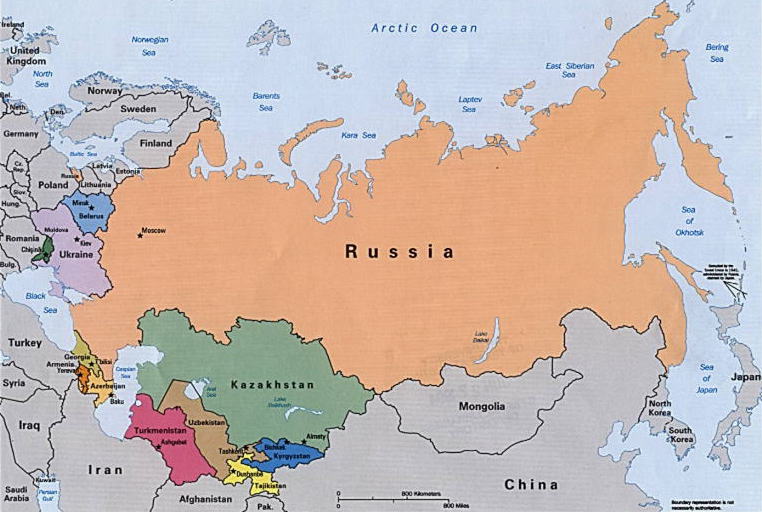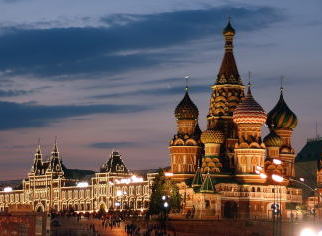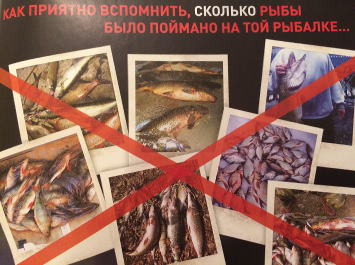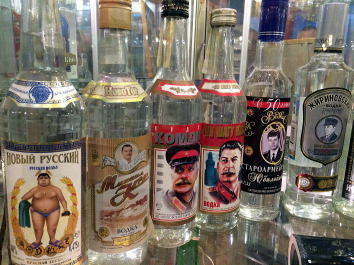I read this book - an account of American angler / writer who travelled
Russia in the 90's. The author encounters as many dark sides of Russia
- poaching, corruption, exploitation of natural resources - as positive
side of Russia and its people. As I trodded my way in his footsteps 25years
later, I found many things remain unchanged - and left unattended.
I certainly enjoy travelling in Russia, and fishing is a great reason and
motivation. But I must warn you visiting remote part of Russia is not always
easy, and recommendable only for those willing to face it..
- Back
Knowing some key words will help you, to the point of finding tours or
lodges of interest. But then, you have to inquire and do so in Russian.
Of course you can try writing in English, but more often than not, no reply
will come. Even those international lodges that have English website often
do not answer queries unless written in Russian.
Any effort to learn Russian will pay its dividends, from the preparation
stage through to the execution, including the communication by the river
bank.
Key words
Рыбалка (Fishing)
нахлыст (Flyfishing)
База (Lodge)
гид(Guide)
лосось (Salmon)
кумжа (Trout)
голец (Char)
хариус(Greyling)
щука(Pike)
Web translator
Microsoft Translator
Google Translator
Fishing
After this much effort in preparing the trip, you would want to see the
rivers and lakes teeming with hungry fish. But the truth is, fishing is
not that easy even in a very remote places.
Russians are way behind the westerners when it comes to sportsfishing ethics, and happy to deplete any water near and a far. Media, especially flyfishing publications are trying to educate anglers but the learning curve is not impressive, especially in the mindset of the countryside folks.
In this IT age, quick web surfing will direct you to fishing sites in no
time. No problem till there.
But the fact is, the information you can access in English is limited.
And surfing in English will inevitably leads you to ''foreigners' deals''
which are twice or thrice more expensive than the ones for locals. You
could be magnanimously accept such, understanding the different wage levels
in the equation, but no wilderness tour is cheap even by the Russian pricing
scheme. I for one, prefer investing some effort in language, to enjoy deals
at a fair price.
Getting around
Russia for an obvious reason has one of the world's most extensive network
of domestic flights and trains. And in most places there are no special
restrictions for foreigners. Even renting a car is becoming a straightforward
business nowadays (except military controlled area, northern part of Kola
peninsula unfortunately is)
Even in remote places where no public transport exists, there often are
private drivers who are willing to taxi you from a place to another. And
the cost is very reasonable, say, 50euro for 100km. Most lodge / tour operator
will be able to arrange such service for you.

Getting there
For nationals of most western countries, the fist step is to get you a
visa. It used to be a painfully laborious and costly exercise once, but
nowadays it has become fairly easy. Most travel agents and fishing lodge
will be able to issue you a 'letter of invitation' for a small cost (20-30euro),
with that you can apply for a tourist visa at your nearby consulate.
Flights to Russia are surprisingly cheap.
From Brussels typically 200euros return, and similar cost from London,
Frankfurt, etc.
From late March to April, snow starts to melt, making the streets of Moscow
a big dirty mess. We normally have to wait till mid May when, all of a
sudden, summer arrives. All the buds of leaves will pop over night, to
capture every bit of sunlight and warmth the short Russian summer may bring.
From mid May to early September is the best time to visit Moscow, and many
other Russian cities for that matter.
Planning
There are abundant tour guides and literatures to help your planning. But
if you wish to go on a customized, hopefully inexpensive tour, you must
teach yourself some basic Russians - as English is not widely understood
even in cities, much less by the rivers.
Russian indeed is a super complex language, those Cyrillic letters to begin
with. But the truth is, if you really face them one intensive evening,
you start recognizing the letters and street signs. Basic travel phrase
can be mastered with a few months' effort, too.




Russia physically is the biggest nation on earth. It once ruled, and still
leads a group of countries called CIS (similar to EU in the west), captured
in the map above.
Climate
Its climate is harsh, consists of short summer and very long winter. In
Moscow, first snow falls in October if not in end September already. The
daylights becomes shorter and shorter, with most days covered in dark clouds
anyway. The temperature hits its bottom around -30 degrees in January and
February. By then, clear blue sky start to show, though by no means signaling
an arrival of the spring yet.
One of the elements that make Russia exotic is its national religion - Russian orthodox. It has a distinctly different air of its own, which commands fair influence in the way Russian cities look, and the way Russian people live.
During Soviet era, religions were illegal and persecuted. Now as they resume
and regain cultural freedom, churches are rebuilt, and religious faith
are making strong come back. The harsh reality of capitalist economy maybe
driving people seeking solace and peace.
Russia was the core dynamo of Soviet Union, the first communism nation
in the history. Much of their 20th century was spent behind the veil of
distinct ideology, till 1991 when the great experiment came to an abrupt
end.
From the aftermath Russia rose quickly - thanks to the surging price of
natural resources of which the country has in abundance. The change was
fast, dangerously so at times, and in many ways we are still observing
the transformation.
 Travel Tips
Travel Tips








